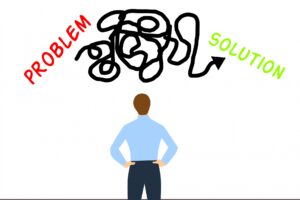
Zen Is The Sentence Of Your Life Once You Remove The Punctuation.
When we first begin practicing meditation, it functions a bit like the punctuation in this sentence. We interrupt the daily flow of our lives to take a time-out, much as a comma pauses the flow of a sentence, for a brief moment. As our practice progresses, the time we spend in meditation tends to expand, becoming more like a semicolon; eventually more like a period, where life goes on, but we come to a full stop in the midst of it. Along the way, we experience a lot of question marks (???) and even the occasional exclamation point (!). These latter Aha! Or Eureka! moments are what keep us going, in the face of little noticeable progress.
With time, we experience a phase-shift. Zen practice becomes no longer an interruption in our life, or a sideshow to the midway of the circus. Zen fully embraces the circus, in all its chaos. Matsuoka Roshi once observed, “People visualize the Zen mind to be like the surface of a pond, smooth as glass, reflecting the full moon in the sky above without distortion. When the wind blows, the surface breaks into waves. Bubbles rising to the surface burst, disrupting the calm water in its natural state. If we throw a stone into the pond, concentric circles ripple to the edges of the pond, disappearing when they break on the shore.”
Stones cast into the still pond are like thoughts that come and go, temporarily breaking the mirror-like surface, and fracturing the reflection of the moon in the sky. If we try to catch the stones and retrieve them from the pond, we stir up even more turbidity, disturbing the mud at the bottom of the pond. If we leave them alone, the pond settles more quickly back into a deep stillness.
“All words, such as “pandemic,” try to capture the meaning of that which is beyond words. It is not the fault of language, but only our dependence upon it.”
— ZENKAI TAIUN ELLISTON-ROSHI
This is a relatively apt metaphor for the Zen mind, as far as it goes. But Sensei also would point out that if you are driving at full speed and then veer off the expressway in an emergency, managing to keep the vehicle under control, miss all the trees, and come to a stop, safe and sound — this is also the Zen mind. The awareness developed in zazen is capable of moving very fast, or of being very still. One capacity supports and enables the other.
A sentence skillfully punctuated flatters the rationality of the discriminating mind, or citta. Without punctuation, it favors the free-flowing stream-of-consciousness characterized by intuition, or bodhi. In Zen, we do not prefer one over the other, but see them as complementary. Both are necessary to the full functioning of the holistic mind, bodhicitta.
Wherever you fall on the intellectual-intuitive spectrum, if you reject one or the other, you do not understand the Middle Way. All such confusions are in the eye, ear, nose, tongue, body and mind of the beholder. In Zen, however, there is no real contradiction, no actual dichotomy, just as there is no conflict between the punctuation and the sentence.
All such seeming dualities are actually complementarities. The punctuation enhances the meaning of the sentence, but would be meaningless without the words. Zen goes beyond words and even thought, but “Although it is not constructed it is not beyond words” from Master Tozan’s “Precious Mirror Samadhi.” All words, such as “pandemic,” try to capture the meaning of that which is beyond words. It is not the fault of language, but only our dependence upon it.Zenkai Taiun Michael EliistonApril 6, 2020








